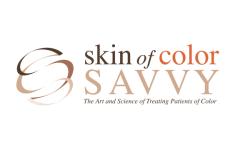
OR WAIT null SECS
Association Found Between COVID-19 Vaccine Booster, Chronic Spontaneous Urticaria
A recent research letter identified a correlation between mRNA vaccines for COVID-19 and cases of chronic spontaneous urticaria, although the connection requires further study.
An association was identified between new-onset chronic spontaneous urticaria (CSU) cases and booster doses of mRNA vaccines for COVID-19 (Moderna), recent data suggests.1
The Swiss study was conducted in order to test the association that had previously been observed between Moderna vaccine booster shots and new-onset CSU cases, due primarily to the fact that mRNA-based vaccines are the most widely used in Switzerland.
The research letter’s authors pointed out that there had been many CSU cases after boosters that had led up to the study, with cases involving recurrent wheals, angioedema, or both for over 6 weeks.
The study was authored by Olivier Duperrex, MD, MSc, from the Center for Primary Care and Public Health in Lausanne, Switzerland.
“To assess whether a temporal association exists between COVID-19 vaccines and new-onset CSU, we compared the incidence rates of vaccine-related CSU in the canton of Vaud (CSU-Vaud) with all of Switzerland (CSU-Swiss),” Duperrex and colleagues wrote.
Background
The investigators enlisted the help of 16 allergists from their region to recruit patients through the Lausanne University Hospital who were eligible for the research.
The study participants were given an online questionnaire link in the time frame between April and August of 2022.
The investigators collected data on the number of original booster doses administered from December of 2021 to August of 2022 to the CSU-Swiss patient population (n = 3 278 808) and the CSU-Vaud patient population (n = 298 813).
The research team wrote that they first assessed what the crude incidence risk ratio of CSU for 100,000 patients would have been following the original dose.
The team then estimated the relative risk of CSU following the administration of both mRNA vaccine boosters to patients.
Findings
The team’s research ended up featuring 80 total participants in the CSU-Vaud cohort, with 70% of the population being female. They included 782 participants in the CSU-Swiss Cohort, with 58% being female in total.
The investigators noted that 90% of the CSU-Vaud group and 81% of the CSU-Swiss group reported CSU after the booster.
They added that the relative risk of contracting CSU following the Moderna booster was 16.1 (10.8 - 24.0) in the CSU-Swiss group and 20.8 (95% CI, 6.5 - 66.0) in the CSU-Vaud group.
“The results of this cohort study suggest an association between the booster dose of mainly the Moderna vaccine and new-onset CSU,” they wrote. “However, this study has limitations. First, there is a selection bias for patients with CSU in relation to COVID-19 vaccines. Baseline data on the incidence of CSU, independent of COVID-19 vaccines, in the general population are not available in Switzerland.”
The team also pointed out that an Omicron variant wave association may also be possible as a confounder, but only 31% of the CSU-Vaud group reported an Omicron infection.
The investigators also added that they believe the data should not discourage vaccinations, but that eligibility and dosing guidelines may need to be addressed.
References:
- Duperrex O, Tommasini F, Muller YD. Incidence of Chronic Spontaneous Urticaria Following Receipt of the COVID-19 Vaccine Booster in Switzerland. JAMA Netw Open. 2023;6(2):e2254298. doi:10.1001/jamanetworkopen.2022.54298.


